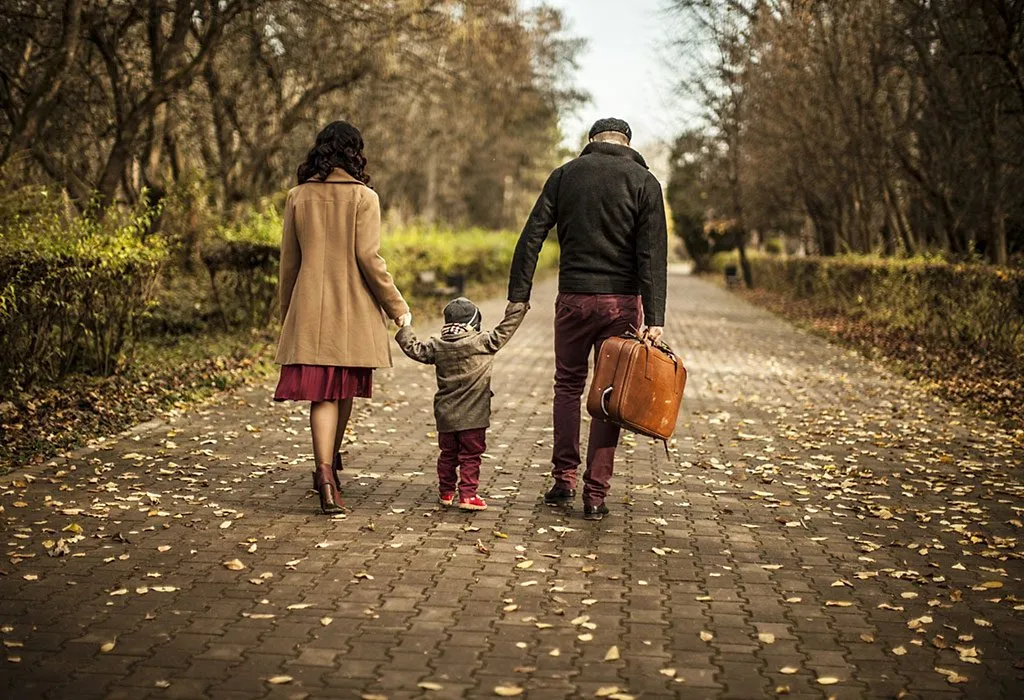

Child adoption is seen as an increasing trend in India and worldwide. Most adoptions are either because the parents cannot have their kids or because they want to support and give a new lease of life to a child who has been left alone in the world. Earlier considered a taboo in India, adoption is now considered and spoken about freely in Indian society.
In India, as across many other countries of the World, there are rules and regulations which govern child adoption.
Adoption is a meaningful way of building families and providing children with loving homes. It is a legal and emotional process that involves accepting the responsibility of caring for a child who is not biologically related to the adoptive parents. Through adoption, children can receive the love, stability, and support they need to thrive. It is a wonderful way for individuals or couples to build families, and it can often be a life-changing experience for both the parents and the adoptive child.
In India, the adoption process is monitored by the Central Adoption Resource Authority (CARA) which is the nodal agency to monitor and regulate in-country and intra-country adoption and is a part of the Ministry of women and child care. The following are the basic conditions which need to be satisfied by the adopting parents in order to be eligible to adopt a child:
Overall, the adoption process in India can be complex and time-consuming, but ensuring that the child is placed in a safe and loving family environment is important. Therefore, the rules and regulations are in place to protect the child’s best interests and ensure that the adoption process is carried out legally and ethically.
CARA has defined the eligibility criteria for prospective adoptive parents in order to be able to adopt a child. They are as follows:
In summary, creating a supportive and loving environment for children is the primary goal of parenting. Parents who provide the aforementioned normal conditions are more likely to raise confident, happy, and well-adjusted children.
The adoption process in India is governed by multiple laws, and adherence to the same is overseen by the Central Adoption Resource Authority.

The procedure for adoption of a child in India can be understood in the following steps:
Prospective adoptive parents need to get registered with an authorized agency. Recognised Indian Placement Agencies (RIPA) and Special Adoption Agency (SPA) are the agencies which are allowed to make such registrations in India. In addition, the prospective adoptive parents can visit the Adoption Coordination Agency in their area where the social worker will explain the process and take you through the formalities, paperwork and general preparation required for registration.
A social worker for the registration agency will make a visit to the home of the prospective adoptive parent in order to do a home study. The agency might also need the parents to attend counselling sessions to understand prospective parents’ motivation, preparation, strengths and weaknesses. As per CARA regulation, the home study must be completed within three months from the registration date.
The conclusion from the home study and counselling sessions is then reported to the honourable court.
The agency shall intimate the interested couple whenever there is a child ready for adoption. The agency will share medical reports, physical examination reports and other relevant information with the couple and allow them to spend time with the child once they are comfortable with the details.
Once the parents are comfortable with a child, they will have to sign a few documents pertaining to the acceptance of the child.
All necessary documents are submitted to a lawyer who prepares a petition to be presented to the court. Once the petition is ready, the adoptive parents will have to visit the court and sign the petition in front of the court officer.
Once the petition is signed in the court, the adoptive parents can take the child to a pre-adoption foster care centre and understand the habits of the child from the nursing staff before taking the child home.
The parents have to attend a court hearing along with the child. The hearing is held in a closed room with a judge. The judge may ask a few questions and mention the amount that needs to be invested in the child’s name.
Once the receipt of investment made is shown, the judge shall pass the adoption orders.
Post-completion of the adoption, the agency must submit follow-up reports to the court on the child’s well-being. This may continue for 1-2 years.

The adoption procedure typically takes two to four years for most families. The delay for a child referral is the main issue affecting India’s adoption process. Being open to adopting a boy or a child with special needs could help parents shorten their wait times.
The prospective parents cannot ask for the adoption of a specific child; hence if you are only looking for a newborn baby adoption, it may not completely be possible. However, they can give their preferences, which may include the following:
In cases where preferences are specified, it may take more time to match a child of your choice as the conditions will reduce the pool of kids available for adoption.
Adoption law in India is in conjunction with the personal laws of individual religion, and therefore, adoption is not allowed as per the personal laws of Muslims, Christians, Parsis and Jews in the country. However, adoption can be made from an orphanage under the Guardians and Wards Act 1890, subject to the court’s approval. In this case, the adoptive couple is guardians and not parents of the adopted child. Under this Act, Christians can adopt a child only under foster care, and the foster child is free to break away all relations from the guardians on becoming a major.
Indian citizens who are Hindus, Jains, Buddhists or Sikhs are allowed to adopt a child formally, and the adoption is as per the Hindu Adoption and Maintenance Act, 1956, which was enacted as part of the Hindu code bills.
Adoption of abandoned, surrendered or abused children is governed by the Juvenile Justice (Care and Protection of Children) Act, 2015.
Currently, no specific law governs adoption of kids in India by foreign nationals or NRI’s, but the same is governed under Guidelines Governing Adoption of Children, 2015. In the absence of any concrete Act for intercountry adoption, the procedures laid down by the Guardians and Wards Act, 1890 are followed.
Following is the list of documents to be prepared for the adoption process:
The maximum age limit for a child for adoption in India is 18. However, consent is needed before adoption when the child is 7 years old.
While adoption laws are common across India, specific adoption guidelines and paperwork requirements may differ for each State.
The cost of child adoption in India CARA (Central Adoption Resource Authority) requires a minimum average income of Rs. 3000 to be able to adopt a child. However, a lower income may be considered if you have other assets like a house or a strong support system.
Yes, you can. However, under the Hindu Adoption and Maintenance Act, you can only adopt a child of the opposite gender your child. The Guardians and Wards Act and the Juvenile Justice Act, do not have any such diktats. If the child you will be adopting is old enough to express his views on the matter, his opinion will be taken in writing.

While there is no central database to track applications, you can always keep in touch with the ACA for the status of your application.
You can take the child for a general check-up to determine his overall health. However, invasive tests should be done only if there is an indication of a serious medical condition.
Also Read: